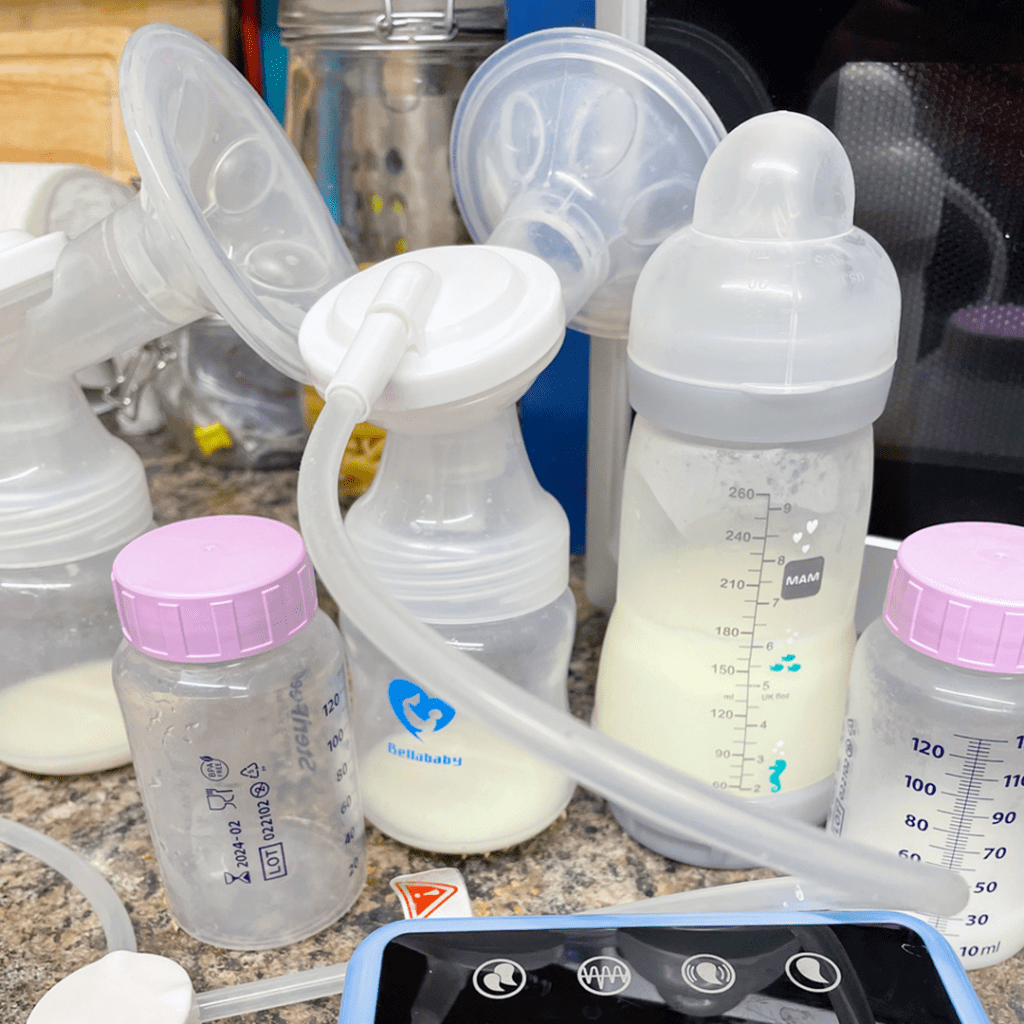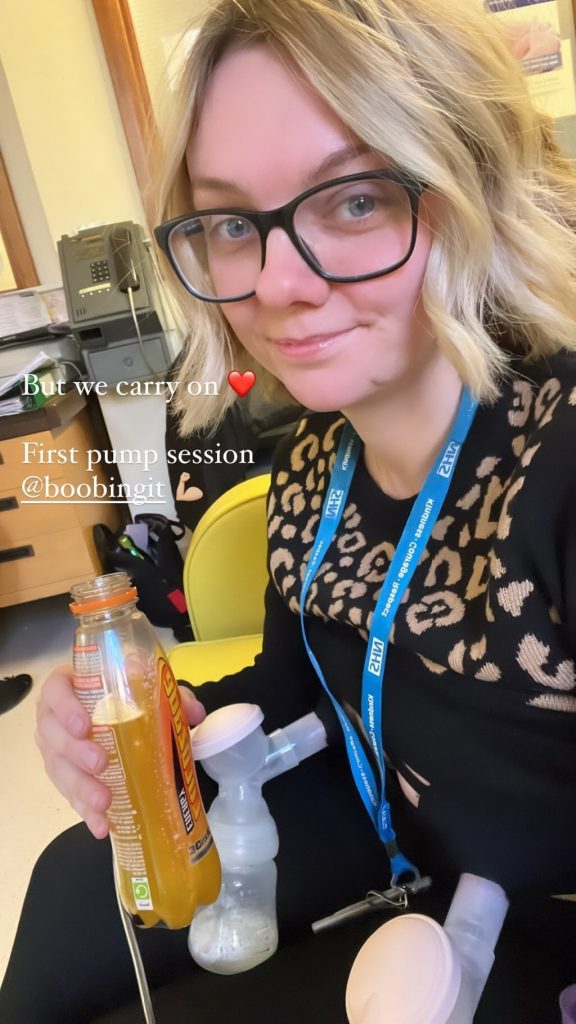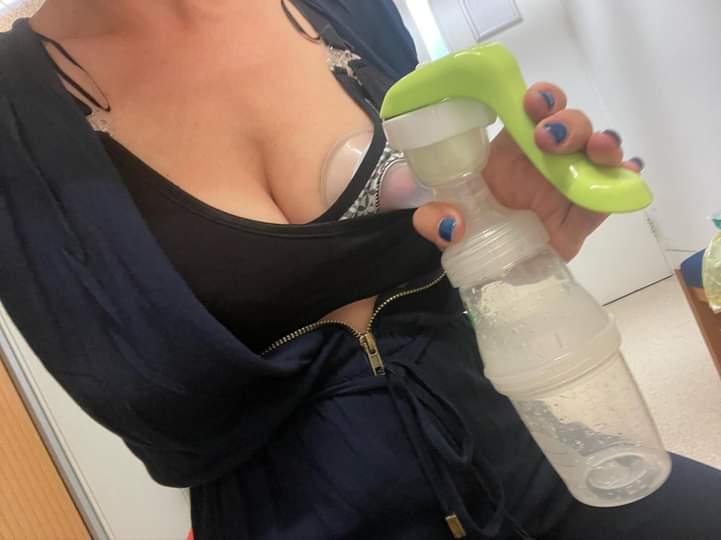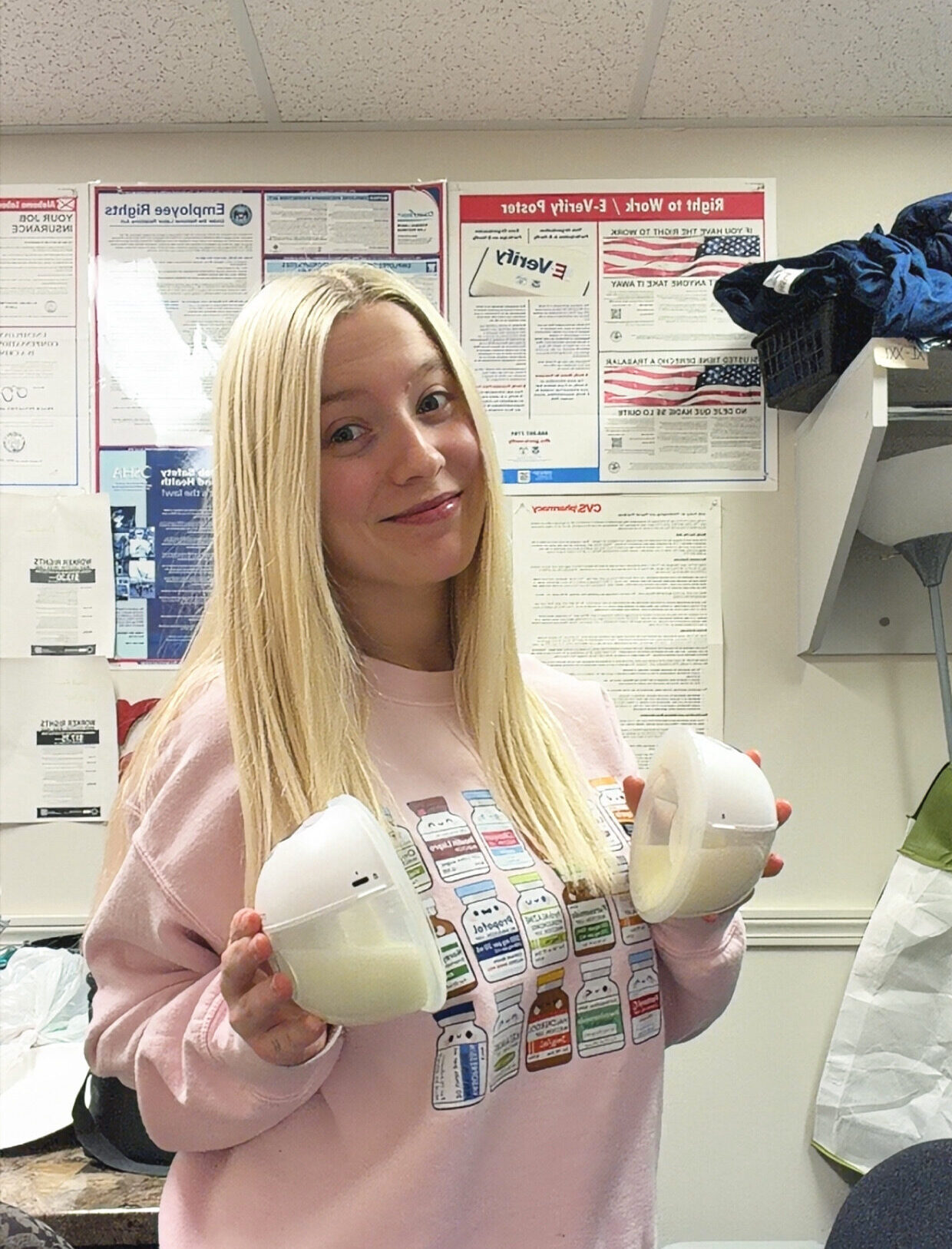Although breastfeeding parents are ‘entitled to more frequent breaks’ when returning to work (hse.gov.uk), in the UK the law does not currently allow a simple, straightforward right to breastfeeding breaks.
Mothers go back to work at different stages of their child’s life and do so for a variety of reasons. Although maternity leave allows you 52 weeks out of work, statutory maternity pay is only paid for 39 weeks.
I returned to work when my maternity pay would stop, which was when my son Rory was 9 months old. Luckily by this point he began to take milk from a bottle. If he hadn’t, I would have had to delay my return to work but in the current climate of inflation, this would have been a difficult decision.

Pumping at work is essential to ensure your comfort and supply
As I got ready to return to work, I thought alot about pumping and how I could make it work whilst at work. The NHS advise that ‘you’ll probably need to express your breast milk at least every 3 hours when your first away from you baby’. For me, this took around 30 minutes each time.
Once back to work I gradually got into a schedule that worked for me. My feeding/pumping on an average day would look like this:
- Morning feed between 6-7am
- Pump 10am (at work)
- Pump 2pm (at work)
- Feed 5-6pm
- Bedtime feed 7pm
By the time of my pumping breaks, especially earlier in the year, I would begin to be uncomfortable. My back would hurt, and my breasts would be full and sore. I was so grateful that I was able to take a break. If I had to wait until lunch time, it would have caused a great deal of discomfort and a risk of mastitis.
Paid breastfeeding breaks the next logical step?
I understand that some employers and employees can come to an agreement on using their lunch breaks etc. If that works for them that’s great. However, employees by law are only entitled to have a 20-minute rest break during their working day, if they work more than 6 hours a day.
If you follow the NHS advice above, one break may not be enough time to pump throughout the whole working day. Additionally, I imagine employees would, while pumping, struggle to eat their lunch, grab a drink and go to the toilet all in 20 minutes.
It was based on all this research that I set up a petition to go to UK parliament to create paid pumping breaks to UK working mothers. As the numbers signing this petition grows everyday, many working mothers have been sharing their experience of breastfeeding and returning to work with boobingit on social media.

Many mothers report having no extra time to pump at work
As mentioned above, employees by law are only entitled to have a 20-minute rest break during their working day, if they work more than 6 hours a day. There is no requirement to give additional time for pumping milk and so it is therefore left to the employers discretion as to whether they offer this to their employees. Unfortunately, many mothers report not being given any additional time or space to pump upon returning to work.
- “Given no time or space to pump” says @ilkramerx
- “Work as a nurse in a hospital, had a room but no extra time” says @nikki25xx
- “Not allowed breaks to pump” says @bex_jennings89
- “NHS said I’d have to owe the time back, went to union and they changed their minds” says @georginabirley
- “Told I could have them (breaks) but in reality no one was available to cover my classes” says @sarahsmith32

Mums resort to breastfeeding/pumping on their lunchbreak
For many mothers, the reality of going back to work has meant pumping during their lunch break – with little to no time to eat themselves, go to the toilet or even go outside for a quick walk. Neither it seem was there any option for paid breastfeeding/pumping breaks.
- “Able to take unpaid breaks. Means I don’t have time for a lunch break so four days stuck inside” says @becca_hall89
- “I had to go home at lunch time to feed my baby – wouldn’t let me do it any other time, big company” says @eg_ep_Ls
- “I expressed in the bathroom on my lunch break. No other rooms available. No extra breaks.” says @shaunao88
Facilities for pumping milk are hit or miss
The law requires an employer to provide a suitable area where they can rest. According to HSE, a suitable place “should include somewhere to lie down, if necessary, be hygienic and private so they can express milk if they choose to – toilets are not a suitable place for this and include somewhere to store their milk e.g. a fridge”. However, some mums have reported that they are struggling to access suitable facilities for pumping – with a bathroom or store room being cited as places they were expected to pump from.
- “Was given time to pump and lots of understanding but expected to do it in the bathroom” says @natashalowsellers
- “I was allocated a break but didn’t always have a place to go which was challenging” says @sarahgrace2710
- “I have twice now had to pump in a stock room as nowhere else” says @mrsbettybowler
Despite this, there were some positive responses in terms of pumping facilities, privacy and support from employers. A few mothers even mentioned their ability to go home and feed their child during work hours.
- “Dedicated private room with a locked fridge and could take breaks anytime I needed” @christinalangtry
- “I was able to go home twice a day to feed my bottle refusing 7 month old – incredibly lucky!” says @sophienorth10
- “I’ve been bought a fridge, and told to take my time. Also, given a private room.” says @gemcx91
- “My trust has breastfeeding champions to help and support staff (NHS)” says @graceredders

There are those who felt they had to stop breastfeeding altogether
Where they can, breastfeeding mothers are trying to use their existing breaks, but there are some circumstances where they may need extra breaks to avoid health complications. Heartbreakingly, some mothers are having to bring their breastfeeding journey to an end – either because they feel their employers simply won’t support their need to pump and express milk, or because the nature of their job makes it very difficult for them to take breaks as and when needed.
- “I stopped before I went back so I didn’t have to have the conversation as I knew how it would go” says @sammybakewell
- “The workload meant I had to stop as I just didn’t have to the time to go to a private room to do it” says @dawnyfrid
Legislation is needed to safeguard breastfeeding mums at work
While it is nice to see that some people have had some positive experiences, most responses sadly show that people have been (or are) struggling. It shows the need for legislation to be passed that provides statutory rights and safeguards them. Having this in place has the potential to save the taxpayer, the NHS and employers money from decreasing the real risk of health complications that people are currently exposed to.
The World Health Organization recommends breastfeeding for up to 2 years and whilst the NHS advice on the time required to pump exists, it does not have any weight unless it has some statutory backing when mums return to work.
By providing accommodations for breastfeeding mothers, employers can improve the health and well-bring of their employees, increase job satisfaction and retention rates, and promote gender equality in the workplace. It sends a message that they value their employees and care about their well-being.
Having workplace support would also encourage breastfeeding mums to return to work and advance in their careers. With this in mind, let’s come together to help create paid breaks for breastfeeding mums. Let’s enable breastfeeding parents to continue their breastfeeding journey without having to fight for it.

You can sign the petition here
If you would like to sign the petition to create paid breastfeeding breaks for working mums in the UK then click here.
We would love to hear your stories on this topic. If you would like to share your experiences with us, please comment below.
References


















